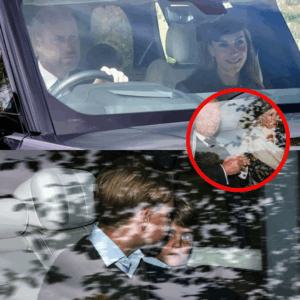In a move that has sent shockwaves through the football world, Liverpool FC announced on August 25, 2025, the immediate termination of Diogo Jota’s contract, followed by a decision to refund the entirety of his remaining salary to his grieving family. The Portuguese striker, tragically killed in a car accident alongside his brother André Silva in July, leaves behind a legacy of 65 goals in 182 appearances for the Reds. The club’s unprecedented gesture—paying out an estimated £14.56 million to Jota’s widow, Rute Cardoso, and their three young children—has ignited a firestorm of emotions among fans, with reactions ranging from heartfelt praise to fiery criticism. Is this a class act from a club known for its heart, or a controversial misstep that undermines Jota’s legacy? As Anfield mourns, the debate rages on, proving that even in tragedy, football is never short on drama.
The announcement came just weeks after Jota’s death on July 3, 2025, in a devastating crash in Zamora, Spain. The 28-year-old, fresh off his wedding to childhood sweetheart Rute and a Premier League title win with Liverpool, was returning to England when a tire blowout sent his Lamborghini spinning into flames. The loss, which also claimed his 25-year-old brother, a midfielder for FC Penafiel, plunged the football community into grief. Tributes poured in from teammates, rivals, and even Oasis, who dedicated a song to Jota during a Cardiff concert. Liverpool’s response was swift and emotional: a statement vowing to “immortalize” Jota’s No. 20 shirt, a book of condolence at Anfield, and a chartered flight for players to attend his funeral in Gondomar, Portugal. But it’s the club’s latest decision—terminating Jota’s contract and transferring his full remaining wages to his family—that has set the football world alight.
At first glance, the move seems like a heartfelt tribute. Jota’s contract, signed in 2022 and running until 2027, was worth £140,000 a week, totaling roughly £14.56 million for its remaining two years. By ending the contract and redirecting the funds to Rute and their children, Liverpool ensures financial security for a family reeling from unimaginable loss. The gesture aligns with the club’s storied ethos of “You’ll Never Walk Alone,” a mantra that has defined its response to tragedies like Hillsborough. At Jota’s funeral, attended by stars like Virgil van Dijk and Arne Slot, the club’s commitment to its own was palpable. Red wreaths adorned with the No. 20, left by teammates like Andy Robertson, symbolized a bond deeper than contracts. “This is what Liverpool does,” a club spokesperson said. “We take care of our family, on and off the pitch.”
Yet, the decision has sparked fierce debate among fans, with social media platforms like X buzzing with polarized opinions. For many, it’s a masterstroke of compassion. “Class act from LFC,” one supporter posted. “Jota gave us everything—goals, titles, heart. His family deserves this.” Others see it as a moral obligation, noting that top-tier clubs often include “death in service” clauses in contracts, ensuring payouts to beneficiaries. With Jota’s estimated net worth of $18 million, bolstered by endorsements with Nike and EA Sports, his family was already secure, but Liverpool’s gesture adds a layer of dignity. Fans point to the club’s history of standing by players, like paying salaries to injured stars or supporting families after tragedies, as proof of its integrity. “This is why I love Liverpool,” another fan wrote. “It’s more than a club—it’s a family.”
But not everyone is singing the same tune. A vocal faction of supporters argues that terminating Jota’s contract, even with the payout, feels like a cold business move that tarnishes his legacy. “Why ‘fire’ him?” one X post demanded. “He’s our No. 20 forever—keep the contract active and pay the family anyway!” Critics contend that the termination, while financially generous, symbolically severs Jota’s tie to the club, reducing his contributions to a transaction. Some speculate it’s a pragmatic decision, tied to insurance policies that recoup losses for high-value players. “They’re just covering their backs,” a skeptic posted. “Clubs insure players like assets—£140,000 a week isn’t charity, it’s a payout.” The debate has even drawn comparisons to other clubs, with one fan noting, “Chelsea or United wouldn’t do this without insurance. Liverpool’s acting like it’s pure heart, but it’s business.”
The controversy deepens when you consider the optics. Jota, who joined Liverpool from Wolverhampton Wanderers in 2020 for £41 million, was a fan favorite for his clinical finishing and relentless work rate. His 65 goals, including clutch strikes in the 2024-25 Premier League title run, cemented his status as a modern Anfield hero. The decision to “immortalize” his No. 20 shirt—widely interpreted as retirement—has only heightened emotions. For some, terminating his contract feels like a contradiction, as if the club is closing the book on a player whose legacy should remain open. “He’s still one of us,” a supporter tweeted. “Why end his contract when we’re retiring his number? It’s disrespectful.”
Adding fuel to the fire is the timing. The announcement came as Liverpool prepared for their Premier League title defense, with a match against Newcastle looming. Fans planning a tribute to Jota—singing “You’ll Never Walk Alone” in the 20th minute—now find themselves torn. “I’m proud of the payout, but the termination feels wrong,” one wrote. “Why not honor him by keeping his contract alive?” Others argue the focus should be on the family’s security, not semantics. Rute Cardoso, married to Jota just weeks before his death, faces the daunting task of raising three young children alone. The payout, structured as installments to avoid a lump-sum tax hit, ensures stability, supplemented by Jota’s life insurance and earnings from his esports ventures, like his Luna Galaxy team.
Behind the scenes, Liverpool’s owners, Fenway Sports Group, are navigating a delicate balance. The club’s financial prudence is well-documented, yet this move suggests a willingness to go beyond legal obligations. Insiders hint that the decision was driven by manager Arne Slot and CEO Michael Edwards, who saw it as a way to honor Jota’s contributions while supporting his family. But critics point to the club’s history of tough business calls—like selling star players to balance books—suggesting the termination frees up wage bill space for future signings. “It’s a noble gesture wrapped in a corporate bow,” one analyst remarked. “Liverpool’s doing right by the family, but they’re also closing a chapter.”
The fanbase’s split reflects broader tensions in football, where passion and profit often collide. On X, hashtags like #JotaLegacy and #LFCClass trend alongside heated threads debating the ethics. “This is about humanity, not money,” one supporter argued. “Jota’s kids will grow up knowing Liverpool cared.” Yet, others see it as a PR move, with one post snarking, “Lighting candles for insurance payouts now?” The debate has even spilled into rival fanbases, with a Manchester United supporter admitting, “Hate to say it, but Liverpool’s showing more heart than most clubs would.”
As Anfield prepares to honor Jota, the controversy underscores the complexity of his loss. For every fan praising the club’s generosity, another questions its motives. For Kate and Gerry McCann, whose daughter Madeleine’s case recently resurfaced with a grim discovery, the payout offers a stark contrast to their ongoing quest for closure. For Rute Cardoso, it’s a lifeline in a sea of grief. And for Liverpool, it’s a moment that tests the soul of a club built on loyalty. As the Kop sings for Jota, one truth shines through: his memory, like his No. 20, will never walk alone—even if the path to honoring it sparks a thousand arguments.





